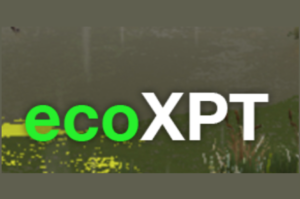EcoXPT: Designing for Deeper Learning through Experimentation in an Immersive Virtual Ecosystem
 Young people now must compete in a global, knowledge-based, innovation-centered economy; they must acquire not just academic knowledge, but also character attributes such as intrinsic motivation, persistence, and flexibility. To accomplish these ambitious goals, the National Research Council (2012) of the United States recommends the use of “deeper learning” classroom strategies. These include case-based learning, multiple representations of knowledge, collaborative learning, apprenticeships, life-wide learning, learning for transfer, interdisciplinary studies, personalized learning, connected learning, and diagnostic assessments. Immersive media (virtual reality, multi-user virtual environments, mixed and augmented realities) have affordances that enhance this type of learning. EcoXPT is an inquiry-based middle school curriculum on ecosystem science that invites students into immersive experimentation with scaffolding tools that support deeper learning. This includes a case-based approach situated in an unfolding eutrophication scenario in which students learn new information from their observations over space and time, speaking with virtual characters in the world, and gathering information in the field guide and other sources. Diagnostic assessments of students’ progress are based on multiple sources, including process data from various types of logfiles. Multiple varied forms of representation convey perceptual, graphical, and experimental data, enabling students to investigate relationships between variables. Students are apprenticed in the ways of knowing of ecosystems scientists, which involves interdisciplinary knowledge. Students collaborate in teams of two, subdividing the tasks of gathering evidence.
Young people now must compete in a global, knowledge-based, innovation-centered economy; they must acquire not just academic knowledge, but also character attributes such as intrinsic motivation, persistence, and flexibility. To accomplish these ambitious goals, the National Research Council (2012) of the United States recommends the use of “deeper learning” classroom strategies. These include case-based learning, multiple representations of knowledge, collaborative learning, apprenticeships, life-wide learning, learning for transfer, interdisciplinary studies, personalized learning, connected learning, and diagnostic assessments. Immersive media (virtual reality, multi-user virtual environments, mixed and augmented realities) have affordances that enhance this type of learning. EcoXPT is an inquiry-based middle school curriculum on ecosystem science that invites students into immersive experimentation with scaffolding tools that support deeper learning. This includes a case-based approach situated in an unfolding eutrophication scenario in which students learn new information from their observations over space and time, speaking with virtual characters in the world, and gathering information in the field guide and other sources. Diagnostic assessments of students’ progress are based on multiple sources, including process data from various types of logfiles. Multiple varied forms of representation convey perceptual, graphical, and experimental data, enabling students to investigate relationships between variables. Students are apprenticed in the ways of knowing of ecosystems scientists, which involves interdisciplinary knowledge. Students collaborate in teams of two, subdividing the tasks of gathering evidence.







